Introduction
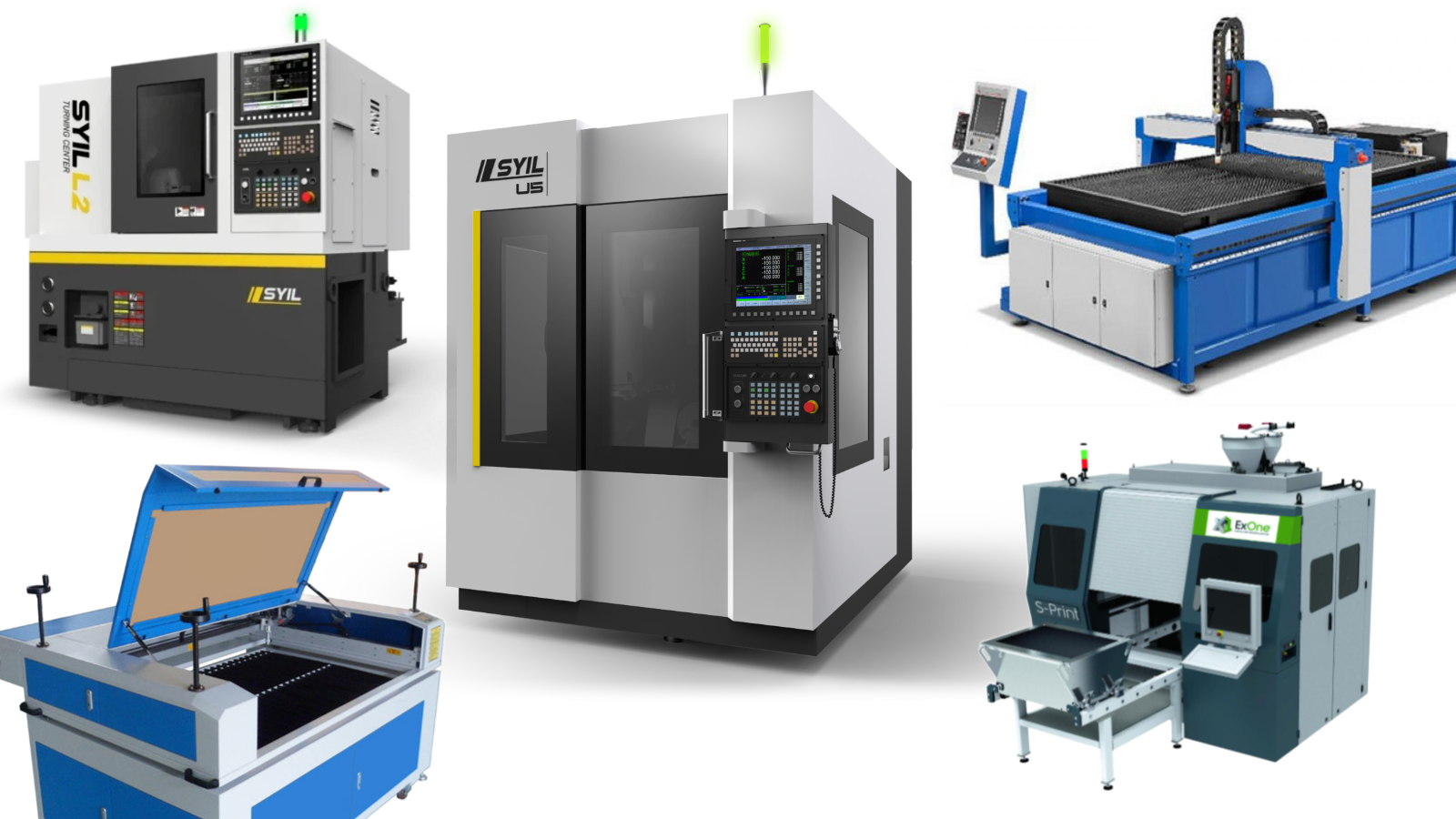
Navigating the world of PCB CNC machines can feel like a daunting task, especially with the myriad of options available today. Whether you're a hobbyist looking to create your own circuits or a professional seeking precision in PCB fabrication, understanding what makes a good CNC machine is crucial. The right PCB maker machine can enhance your workflow and output quality, making it essential to consider various factors before making a purchase.
Understanding PCB CNC Machines
At its core, a PCB CNC machine is designed to automate the process of creating printed circuit boards with remarkable accuracy. These machines utilize advanced technology to mill, drill, and route PCBs efficiently, transforming your design files into tangible products. From desktop models ideal for small-scale projects to industrial-grade machines suited for larger operations, each type serves specific needs in the realm of electronics manufacturing.
Importance of Choosing the Right Machine
Selecting the right CNC machine for PCB fabrication can significantly impact your productivity and project outcomes. With options like The Smartest Desktop CNC Machine or specialized PCB Router Machines on the market, understanding their capabilities is vital for making an informed choice. A well-suited machine not only improves efficiency but also ensures that you achieve high-quality results while keeping costs manageable—after all, nobody wants to overspend on a PCB CNC machine price that doesn’t align with their needs.
Key Features to Consider
When evaluating potential machines, several key features should be at the forefront of your decision-making process. Accuracy and precision are paramount; after all, even minor discrepancies can lead to significant issues down the line in circuit performance. Additionally, consider software compatibility; ensuring that your chosen CNC pcb drilling machine integrates smoothly with your design tools will streamline production and minimize headaches during setup.
Types of PCB CNC Machines
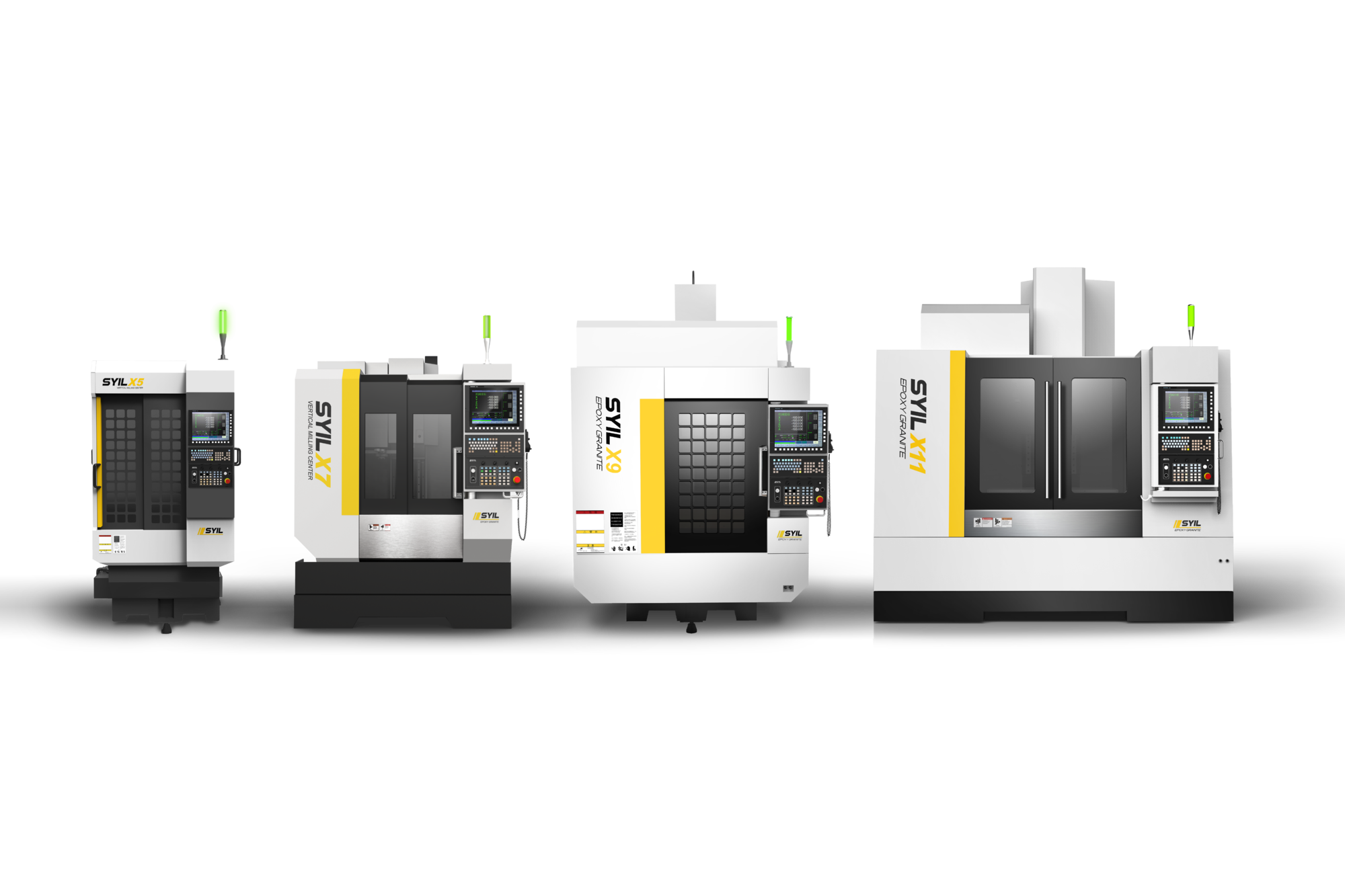
When diving into the world of PCB CNC machines, it's essential to understand the various types available on the market. The choice between desktop and industrial models can significantly impact both your workflow and budget. Each type serves distinct purposes, catering to different users ranging from hobbyists to large-scale manufacturers.
Desktop vs. Industrial Models
Desktop PCB milling machines are perfect for small-scale projects or home-based workshops, offering a compact solution for PCB fabrication. These machines are generally more affordable than their industrial counterparts, making them accessible for beginners and DIY enthusiasts alike. On the other hand, industrial models boast advanced features and higher precision, designed for mass production in professional settings.
The Smartest Desktop CNC Machine stands out in this category by offering impressive capabilities without taking up too much space. While desktop models may limit the size of PCBs you can create, they often come equipped with user-friendly software that simplifies operation for newcomers to CNC technology. In contrast, industrial machines excel in speed and efficiency but require a more significant investment and expertise to operate effectively.
Recommended Brands and Models
Several reputable brands have made their mark in the realm of PCB CNC machines, each offering unique features suited for different needs. For those seeking a reliable desktop option, consider models like the Bantam Tools Desktop PCB Milling Machine or the Othermill Pro; both provide excellent precision at a reasonable price point. If you're leaning towards an industrial-grade machine, brands like SYIL offer robust solutions that cater specifically to high-volume production environments.
When searching for a CNC machine for PCB fabrication, it’s crucial to evaluate customer reviews and product specifications before making a decision. Additionally, some brands specialize in creating dedicated PCB router machines that streamline specific tasks such as drilling or cutting multilayer boards efficiently. Remember that investing time in research will pay off when you find the right model tailored to your needs.
Advantages of Each Type
Choosing between desktop and industrial models ultimately depends on your specific requirements and goals within PCB design and manufacturing. Desktop machines are typically easier to use, require less setup time, and are perfect for rapid prototyping or educational purposes; they make excellent tools for hobbyists looking to experiment with new designs without breaking the bank on a high-end unit like an industrial machine.
Conversely, industrial models provide unmatched speed and accuracy necessary for larger operations where time is money; they can handle complex designs with multiple layers more efficiently than most desktop options can manage alone. Furthermore, while initial investments may be higher with an industrial CNC pcb drilling machine or router machine due to their advanced capabilities, they often yield better long-term returns through increased productivity.
In summary, whether you choose a desktop model like The Smartest Desktop CNC Machine or opt for an industrial powerhouse depends on your specific project needs and budget considerations—both have unique advantages worth exploring!
Budgeting for Your PCB CNC Machine

When it comes to investing in a PCB CNC machine, budgeting is crucial. You want to ensure that you choose a machine that meets your needs without breaking the bank. Setting a realistic budget will not only help you narrow down your options but also give you clarity on what features you can afford.
Setting a Realistic Budget
Before diving into the world of PCB CNC machines, it's essential to assess your financial situation and determine how much you're willing to spend. Consider not just the initial purchase price of the machine but also additional costs like tools, software, and maintenance. Remember, while The Smartest Desktop CNC Machine might sound appealing, it’s vital to find one that aligns with your budgetary constraints and operational needs.
You should also factor in potential upgrades or add-ons for your desktop PCB milling machine as they can add significant value over time. By setting a realistic budget from the start, you'll avoid overspending and ensure that your investment in a CNC machine for PCB fabrication is sustainable in the long run. Don't forget to account for any unexpected expenses; having a buffer can save you stress later.
Cost of SYIL CNC Machines
When considering specific brands, SYIL CNC machines are often highlighted due to their quality and reliability in the market. The price range for these machines varies significantly based on features and capabilities; however, they typically fall within an accessible range for both hobbyists and professionals alike. For example, entry-level models may start at several thousand dollars while more advanced options tailored for intricate work could set you back considerably more.
Investing in a SYIL PCB router machine can be worthwhile if you're looking for precision and durability in your projects. Keep an eye out for seasonal sales or promotions which might offer substantial savings on these machines; this could be an excellent opportunity to snag a deal on high-quality equipment without compromising on features or performance. Ultimately, understanding the cost associated with SYIL machines will help guide your decision-making process effectively.
Long-term Investment Considerations
Purchasing a PCB maker machine isn't just about immediate needs; think long-term! Investing wisely means considering how well the machine will serve you over time—its lifespan, maintenance costs, and potential resale value are all key factors here. A good rule of thumb is that spending slightly more upfront on quality often results in lower costs down the line due to reduced repairs or replacements.
Additionally, consider how versatile your chosen CNC pcb drilling machine is; one that can handle various tasks may save you from needing multiple devices later on. As technology evolves rapidly within this field, selecting a model that's compatible with future upgrades ensures you'll stay relevant without needing frequent replacements—a smart move indeed! In short, approach this investment with foresight so you're not just buying into trends but securing enduring value.
Essential Features to Look For
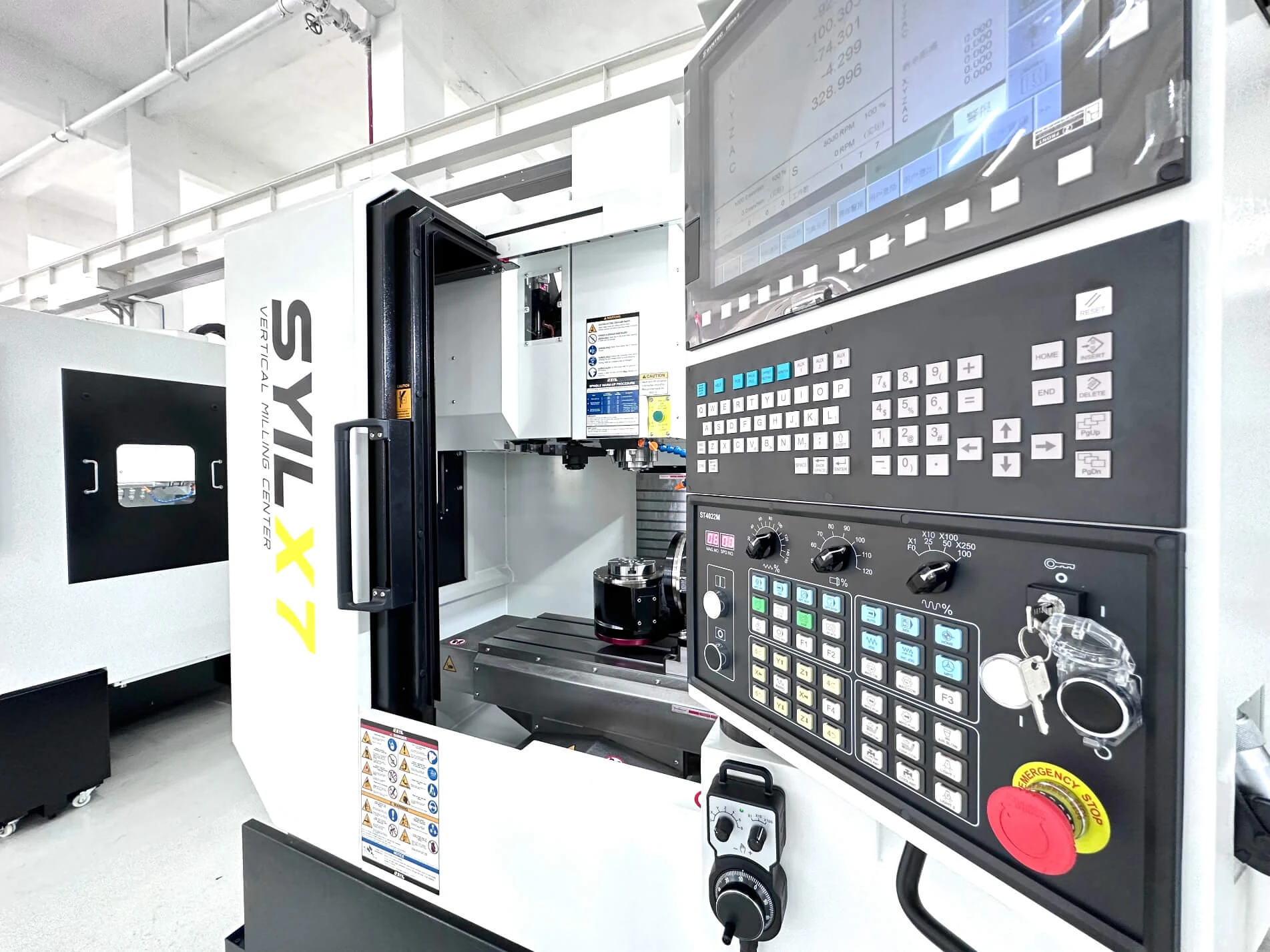
When investing in a PCB CNC machine, several essential features can significantly impact your experience and the quality of your work. Understanding these features will help you select the best CNC machine for PCB fabrication that suits your needs. Let's delve into accuracy and precision, software compatibility, and speed and efficiency.
Accuracy and Precision
Accuracy and precision are paramount when choosing a PCB CNC machine; they directly influence the quality of your final product. A high-precision desktop PCB milling machine ensures that every cut is exact, resulting in clean lines and proper component placements on your circuit boards. If you're serious about creating professional-grade PCBs, look for a CNC machine for PCB fabrication with tight tolerances—typically within 0.01 mm or better.
Precision isn't just about cutting; it's also about how well the machine can reproduce designs consistently over time. The smartest desktop CNC machines often come equipped with advanced technology that enhances their accuracy, making them ideal for both hobbyists and professionals alike. So, when comparing options, don't overlook this crucial feature—it could mean the difference between a successful project and one that falls flat.
Software Compatibility
In today's digital age, software compatibility is a vital consideration when selecting a PCB maker machine or any CNC equipment. Most modern machines require specific software to create designs efficiently; thus, ensuring that your chosen model works seamlessly with popular design programs is essential. Look for machines compatible with industry-standard software like Eagle or KiCAD to streamline your workflow.
Moreover, having easy access to user-friendly software can make all the difference for beginners learning the ropes of CNC machining. The right desktop PCB milling machine will often come bundled with intuitive software options or provide support for third-party applications—this flexibility can save you time and frustration during setup and operation. Remember, investing in a good software package alongside your CNC pcb drilling machine enhances usability while maximizing productivity.
Speed and Efficiency
Speed is another critical factor when evaluating different types of PCB CNC machines; after all, who wants to wait around forever for their projects to finish? A fast-running PCB router machine can significantly reduce production times without sacrificing quality—a win-win situation! Look for specifications indicating rapid feed rates as well as spindle speeds that suit your specific material requirements.
Efficiency goes hand-in-hand with speed; it’s not just about how quickly you can complete tasks but also how effectively you utilize materials during the process. Machines designed specifically for efficiency will minimize waste while maximizing output—essential if you're operating on tight budgets or timelines (and who isn’t?). By prioritizing speed along with efficiency in your choice of equipment, you'll be able to tackle more projects without compromising on quality.
Learning Resources for Beginners
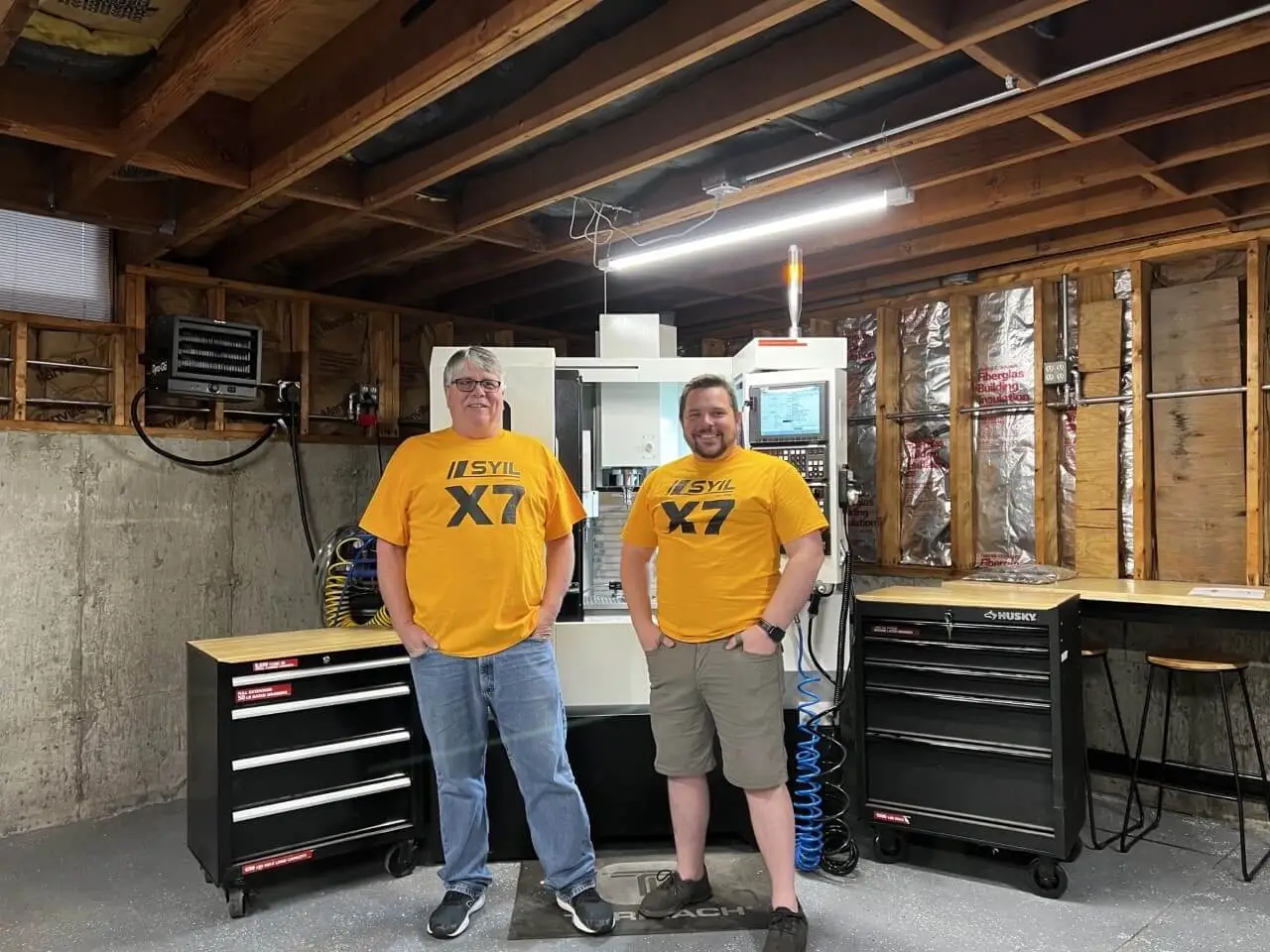
Diving into the world of PCB CNC machines can be overwhelming, but there are numerous resources available to help you navigate this exciting journey. From online courses that break down complex concepts to community forums where you can connect with fellow enthusiasts, there's a wealth of information at your fingertips. Whether you're looking to master the operation of a desktop PCB milling machine or just want to understand the basics of a CNC machine for PCB fabrication, these resources will set you on the right path.
Online Courses and Tutorials
Online platforms offer a variety of courses tailored specifically for beginners interested in PCB CNC machines. Websites like Udemy and Coursera feature comprehensive tutorials that cover everything from basic CNC programming to advanced techniques in using a PCB router machine. These courses often include video demonstrations, making it easy to grasp how to operate your new PCB maker machine effectively.
Additionally, many manufacturers provide their own training resources, which are invaluable when learning how to use specific models like The Smartest Desktop CNC Machine. These tutorials often include detailed instructions on software compatibility and maintenance tips that are crucial for ensuring your CNC pcb drilling machine runs smoothly. Investing time in these online courses can significantly enhance your understanding and skills in operating any type of PCB CNC machine.
Recommended Books on CNC Technology
Books are an excellent way to dive deeper into the technical aspects of CNC technology related to PCB fabrication. Titles such as CNC Programming Handbook by Peter Smid provide foundational knowledge about programming and operating various types of CNC machines, including those designed specifically for PCBs. This book is particularly helpful if you're looking to understand the intricacies involved with a desktop PCB milling machine or any other specialized equipment.
Another great resource is PCB Design Tutorial by David L. Jones, which focuses on both design principles and practical applications relevant to using a CNC pcb drilling machine effectively. With detailed illustrations and step-by-step instructions, this book serves as an essential guide for anyone wanting hands-on experience with their new PCB maker machine. By combining these readings with practical exercises, you'll gain confidence in navigating the world of PCB manufacturing.
Community Forums and Support Groups
Engaging with community forums is one of the most effective ways to learn about using a PCB CNC machine while connecting with experienced users who share similar interests. Websites like Reddit's r/CNC or dedicated forums like CNCKing.com offer platforms where you can ask questions about specific issues or seek advice on choosing between different models such as industrial versus desktop options. The insights shared by seasoned users can help you avoid common pitfalls associated with operating a cnc machine for pcb fabrication.
Moreover, social media groups focused on DIY electronics often host discussions about various aspects of using tools like a PCB router machine or other types of machinery used in electronics manufacturing. Joining these communities not only fosters learning but also provides opportunities for networking with individuals who may have already faced similar challenges regarding pricing or maintenance concerns associated with different models' prices—like the ever-important topic: what is the typical pcb cnc machine price?
Lastly, many local makerspaces offer workshops where beginners can get hands-on experience under expert guidance while working with machines such as The Smartest Desktop CNC Machine or other brands available today! These workshops create an invaluable environment where learning becomes interactive and fun while allowing participants access to state-of-the-art equipment.
Maintenance and Support Options
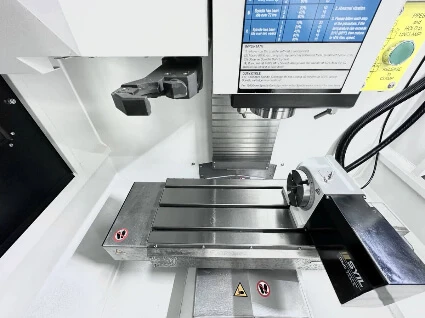
When investing in a PCB CNC machine, understanding the maintenance and support options available is crucial to ensure its longevity and optimal performance. Regular maintenance not only prolongs the life of your machine but also enhances precision in your PCB fabrication projects. Neglecting this aspect can lead to costly repairs or even the need for a new desktop PCB milling machine sooner than expected.
Importance of Regular Maintenance
Regular maintenance of your CNC machine for PCB fabrication is essential to keep it running smoothly and accurately. Dust, debris, and wear can accumulate over time, affecting the precision of tasks like drilling or routing PCBs. By adhering to a consistent maintenance schedule, users can prevent minor issues from escalating into major problems that could disrupt production timelines.
Additionally, proper care ensures that your PCB maker machine operates at peak efficiency, reducing waste material and improving overall output quality. Implementing routine checks on components such as the spindle, motors, and software can save you money in the long run by avoiding unexpected downtimes or malfunctions. Ultimately, regular upkeep transforms your CNC pcb drilling machine into a reliable partner in your PCB manufacturing journey.
Finding Reliable Support Services
Navigating through support services for your PCB CNC machine doesn't have to feel like searching for a needle in a haystack. Look for manufacturers or retailers who provide robust customer service options; they'll often have dedicated teams ready to assist with troubleshooting any issues you might encounter with your desktop PCB milling machine. Online reviews and community feedback are great resources when assessing which companies stand out for their reliability and response times.
Moreover, many brands offer extended warranties or service plans that cover parts replacement and technical assistance—an investment worth considering if you want peace of mind with your CNC router machine purchases. Establishing a solid relationship with these service providers can make all the difference when urgent repairs are needed or if you're looking for upgrades down the line.
Warranty and Customer Service Insights
When purchasing a PCB CNC machine price should reflect not just the hardware but also the warranty terms offered by manufacturers. A good warranty will cover defects in materials or workmanship while providing access to customer support during critical moments when you might need guidance on operating your CNC pcb drilling machine effectively. Always read the fine print; knowing what’s covered—and what isn’t—can save you from unexpected expenses later.
Customer service quality varies widely among brands; therefore, it's wise to choose one known for its responsive support team who understand both technical details and user needs alike. Engaging with community forums can also provide insights into real-world experiences regarding warranty claims or customer interactions with specific brands—information that's invaluable before making that big purchase decision! After all, no one wants to be left high-and-dry without proper backup when working on intricate designs using their favorite PCB maker machines.
Conclusion

In the ever-evolving world of electronics, investing in a PCB CNC machine is more than just acquiring a tool; it's about enhancing your capabilities and efficiency in PCB fabrication. With various options available, from the smartest desktop CNC machine to robust industrial models, making an informed decision is crucial. Consider your specific needs, budget constraints, and desired features to find the perfect fit for your projects.
Make an Informed Decision
Choosing the right PCB CNC machine can feel overwhelming given the myriad of choices available in today’s market. Factors like accuracy, speed, and software compatibility should guide your selection process. By thoroughly researching options such as desktop PCB milling machines or advanced CNC pcb drilling machines, you can ensure that you invest wisely and get the best value for your money.
Embrace the Learning Curve
Transitioning to using a PCB maker machine or any CNC technology will inevitably come with its challenges. However, embracing this learning curve can lead to significant rewards in terms of skill development and project outcomes. Remember that every expert was once a beginner; take advantage of online courses and community resources to boost your proficiency with your new equipment.
Join the PCB CNC Community
Becoming part of the PCB CNC community opens up avenues for collaboration, support, and shared knowledge among enthusiasts and professionals alike. Whether you're discussing techniques for optimizing your desktop PCB milling machine or troubleshooting issues with a PCB router machine, connecting with others can enhance your experience significantly. Engaging with forums or local groups not only enriches your understanding but also helps you stay updated on industry trends and innovations.

